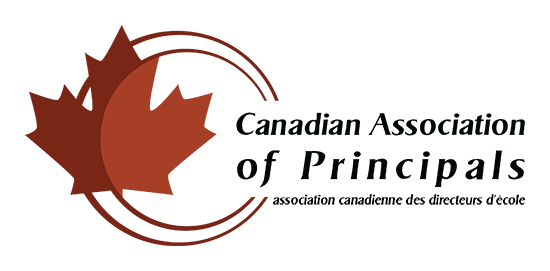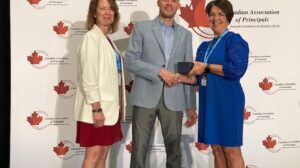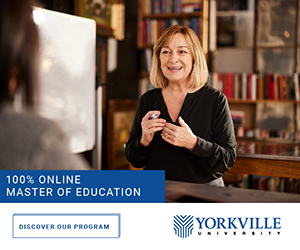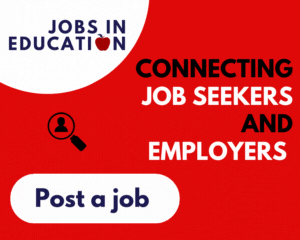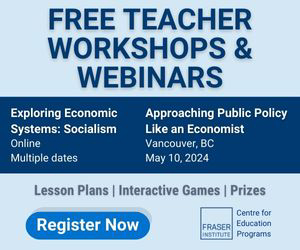I’m resilient but exhausted! While considering several things over the summer I recalled this amazing quote from a research paper produced by Indspire’s Research and Impact Unit: “Journeys to Success Empowering Indigenous Visions of Success Through Photovoice”. It was written by Research Assistants, aspiring Indigenous researchers who joined Indspire’s Research Knowledge Nest program to gain expertise in real-world, hard-core data crawling and crunching as well as all things research-ey. They said, in one of the sections about Cultivating Strength and Resiliency: “The ability to cultivate our strength and remain resilient despite all the obstacles we face throughout our lives was viewed as a success to us. This included feelings of giving up but ultimately persevering to overcome these challenges through determination. This was about being able to continue, no matter how difficult our journey can be, and allowing patience with ourselves to draw on our strength. Success comes from honouring the strengths of those who walked before us and carrying forward through the next generations, making our ancestors proud.”
According to some of the stats out there, I too am resilient. I didn’t go to residential school, although both of my grandparents did. I’m not a single parent, but my mother is. I’m not struggling too badly with finances, unlike my mother, brother, and I did while growing up. Does any of this mean I’m better or worse than you? I have no idea. I didn’t know it was a competition, but according to some folks, in the grand scheme of things, it apparently is. I wasn’t trying to be resilient, as far as I could tell; I was just trying to be me. I was just trying to get through the day, the week, the month, or through whatever the Creator was throwing at me at the time. I don’t feel oppressed by the Canadian government despite their unfavourable stats surrounding several issues concerning FNMI folks and our communities across Turtle Island. Some would suggest that the feds are trying and are getting better with acknowledging past transgressions as they continue attempting to bring about more positive changes within communities. I usually wonder if what they are attempting is fast enough, good enough, or just barely enough in what I believe to be far too many communities.
I’ve been pondering some of these things about resiliency for myself and my brothers and sisters across this land for a bit now, especially as I observe my 2-year-old daughter as she endeavours to prove her own resiliency during her attempts at amazing feats of toddlerhood throughout her busy day. How often has she had to pick herself up, dust herself off and have someone wipe away her tears as she yet again discovers the unfaltering punishment of gravity and a burgeoning sense of proprioception! Then I fast-forward and wonder how much of her Indigeneity will still need to be resilient in her future. My intention is that by deciding to continue having oftentimes cumbersome conversations about the Indigenous experience in Canada with sometimes difficult people, I will ensure that she won’t have to put up with some or any of the struggles that I had growing up. But I get that ominous feeling about how far we still must go along the road of reconciliation. Despite the huge number of allies and the tremendous strides being made, it is still a thing that needs to be worked on like all good relationships; mutual respect and understanding takes time.
I guess what I’ve really been considering are the amounts of resiliency that we all seem to have as part of the human condition, whether we are Indigenous or not. I really don’t like to dwell on my own obstacles or even bring them to the discussion. I don’t perceive myself as a victim of any sort. Yet here I am, bringing some of the challenges in my background to the foreground again – not because I want to, but because I believe it’s important for context and understanding. I seem to be able to justify to myself to allow the peek into my background under the guise and with the belief that even a small view of my heritage will provide some framework for my opinions and worldview. For many folks this is also known as speaking “My Truth”. To be fair, sometimes I struggle with the term “My Truth” along with a few other wokeisms that I won’t get into here. Perhaps it’s what I’ve discovered about myself, or perhaps it’s a generational aspect, but mostly I think it’s because I find myself seeing that there appears to be encouragement to support three versions of the truth, when really, I believe there should only be one version. It seems that we’re meant to believe that there’s your version of what happened, my version of what happened and then what happened, the latter ultimately being the truth since that’s what happened without any spin, or bias, or alternate facts, meaning that there isn’t an interpretation of events.
I tend to use a more pragmatic understanding about truth that could be rendered as statements about reality upon which I can bet and reliably win gravity, for example. I’ve discovered that, more recently, topics like this fall into the two possible views often considered to be part of Indigeneity. Either I’m considered to be someone who exhibits positive traits such as resiliency and survivor hood, someone who has lost most of their rich culture and history yet who is able to thrive and strive in this world that they didn’t create. Or similarly, but completely opposite to this viewpoint, is that I must dispute the assertion that I want to claim victimhood, so that as an alleged victim I am continually permitted to bilk the system for things that Canadians who aren’t Indigenous don’t get to have as a “benefit”. Sometimes defending or explaining my resiliency then does become a race to the bottom of the victimhood ladder. Or is it a race to the top of the victimhood hierarchy?
Regardless, that’s why I dislike bringing it up, even though it can potentially sway another’s perception about me and why I am the way I am. As indicated earlier, I don’t want to be included in a competition about who can sing the saddest song the longest. We all have our own struggles and hardly anyone knows what invisible backpack of doom and gloom or fun and frivolity someone else is carrying. What I have been able to do in my teaching career is pause long enough to give the Native students in my class the moment to be with them. To know what it’s like to not know whose house you’ll be staying at tonight because of overcrowding or substance abuse and if there will be an actual bed to sleep in. Or if there will be anything for lunch because there wasn’t anything for breakfast. So, if they need the time and space to work through that, I can give it to them.
This brings me to the point about being exhausted. Being a victim is exhausting; continually having to explain the situation, always justifying one’s displeasure with the status quo, ignoring the ignorant. The ignorant are especially hard work because they are so darn persistent with their ignorance. They always are so well armed with half-truths, logical fallacies, and biases galore that it is grueling having to explain and re-explain the life of this Mohawk, since to them, I represent all things Indigenous and automatically know what my cousins or mom think. I’m reiterating some of the things that so many folks get wrong about what it means to be a First Nations Native in Canada. All these sidetracks aside, the thing that really bugs me the most is that I don’t want to be labelled a victim nor do I want to be held up as a shining beacon of hope and a role model as I explain a variety of Indigenous topics. I don’t want the weight of that backpack added to what I already carry around. Yet, time and time again, I’m dragged into this type of discussion where I feel the natural compulsion to justify my worldview or fight the preconceived label-making once my background does come out. I go back and forth with an inner dialogue about providing some knowledge while hoping for some learning and understanding to occur with the internal competing opposite thought: I don’t have time or energy to explain this again.
A few weeks ago, I was sitting on a plane, minding my own businesses, when my co-passenger beside me started a conversation about travelling and work. This shifted to a discussion about some of my roles within the Indigenous realm. The next thing that happened was typical because yet again I still found myself politely attempting to explain why a lot of FNMI folks don’t exercise their right and privilege to vote in elections of any sort. I can’t even remember how we ended up on this topic of discussion. I kept thinking, “we know why we don’t vote, why don’t you know why we don’t vote?” There is some historical context in the backgrounds for many FNMI people about that relationship with colonial democracies. I tried using another analogy about His Holiness. Even if we could vote for the Pope, some of us don’t see the value of making a choice in something that doesn’t belong to us. Nor do some of us see the value in deciding on someone’s position of power or leadership who isn’t going to do anything significant for our benefit. Basically, it becomes the “same old, same old” to some of us. Regardless of who is wearing the red shoes or papal hat and robes, he is going to do what’s best for the Church and its reputation. Swap the Pope for the PM and it’s just part of one small reason why this form of democracy isn’t as valued as perhaps many folks in the Western world believe it should be for us Indigenous peoples. After this discussion, I wanted to take a nap. This is similar to a common and incredibly tiring occurrence for Indigenous students at post-secondary institutions: they often find themselves being put in the role of instructor/explainer of all things Indigenous by their instructors and fellow students, regardless of whether they grew up in their community, have a connection to ceremony or language, or whether they are First Nation, Metis, or Inuit.
Don’t get me completely wrong, though. Partially wrong is an acceptable perception for you to hold of me, and of anyone else you may not know. Please note that this next section should be read as if it’s written in Sarcastica Font and is meant to be tongue in cheek. Being a resilient victim does have its perks. I get to feel that I have the moral high ground. Can you see me way up here? I can assign my unhappiness to someone else. I might as well blame my grade 2 teacher who had it out for me because I wanted to colour my elephant purple. I particularly enjoy how I get to feel sorry for myself. This means that I get to treat myself better than I typically do. (Extra spa days and mani-pedis!) I also don’t need to look closely in the mirror in order to examine my own behaviours, or make any changes about any of my actions, because technically I haven’t done anything wrong. Basically, I’m always right and if you give me enough time, I can explain to you why I am always right. Best of all, procrastination and inaction take centre stage in my perception since I am never required to make any difficult or challenging feats to improve the situation. After all, what happened is not my fault. And of course, being in this position may be comfortable simply because it is an old and familiar pattern in a person’s life.
None of these attitudes suit me. It’s just as tiresome as any of the blame games out there. If it’s not this aspect that requires a verbal interchange, then I find myself having to explain why I didn’t end up on the adverse end of the statistical spectrum. “Are all Mohawks strong achievers and positive role models like you?” I was asked by a former colleague while teaching along the Quebec side of James Bay. This was a weird thing for me to hear. I was simultaneously humbled by their acknowledgement of my many achievements in a variety of areas while also feeling indignant.
I’m finding that resilience, like reconciliation, is a meandering journey. It’s unusual since it seems to be a group trek that is taken by individuals. Not everyone who is resilient wants to reconcile. Why would someone want to make peace with their abuser a.k.a. oppressor? Because that’s where their strength comes from. But reconciliation takes a big leap of faith, especially from those of us who are tired of jumping or leaping. We are expected to believe that those in the driver’s seat are acting in good faith with our mutually beneficial outcomes being achieved. This faith takes strength or resiliency.
Please believe me when I suggest that some of us are just too tired to keep going, to keep fighting the good fight. Although, during moments such as these, I’m revitalized when I consider the number of former Grade 5 Cree students whom I taught up along the James Bay coast of northern Quebec who come to say hello at Soaring, Indspire’s annual youth empowerment gathering. Any occasion where there are several hundred FNMI high school students who are considering their continued journey in education should warm the cockles of any teacher’s heart. And I have a 2-year-old who requires me to keep going so the fight she may or may not have will be a fairer fight. I want her to grow up being a resilient person who happens to be Indigenous rather than a resilient Indigenous person.
You can discover more about Indspire here, https://indspire.ca/ If you want to learn more about some of the research being done by Indspire you can find it here, https://indspire.ca/programs/research-and-impact/research-knowledge-nest/
AUTHOR BIO:
Mike Hager belongs to the Bear Clan of the Mohawk Nation. Growing up, he spent time living on the family farm on 6 Nations of the Grand River and in the nearby town Caledonia. His alma mater is the University of Guelph where he got his honours BA in history with a double minor in Criminology and Sociology. Mike was also student athlete playing on the football, rugby, and wrestling teams. While deciding about the pursuit of graduate studies in history, Mike helped coach the Gryphon women’s rugby team to winning seasons back to back while he received his Indigenous focussed BEd to teach in the Primary/Junior levels from Brock University.
After graduating from Brock, he taught in the Mohawk Immersion sector of a new primary school for 2 years on 6 Nations of the Grand River before heading to New Zealand to play rugby and teach in Rotorua. Initially it was meant to be a one-year adventure. It became a 10-year exploration of the South Pacific that ended with his New Zealand citizenship and the opportunity to work in England for a New Zealand software development company and furthering his rugby career while based in Manchester.
Eventually, Mike found his way back to Canada and back to teaching. This new venture took him to the James Bay Eeyou School in northern Quebec teaching in the Cree village of Chisasibi along the shores of James Bay. Once again, an intended one-year exploration grew into an 11-year discovery of living and teaching in the isolated north. It was here that Mike was introduced to Indspire through the Peer Support program by being a mentor for new teachers. During this position Mike was made fully aware of the many wonderful initiatives that are available through Indspire.
It was a complicated decision to leave the wonderful connections that were made in the north. He appreciated becoming a welcome member of the Cree community where hunting, fishing and 9 months of winter were big parts of his life living beside the James Bay and the big river.
